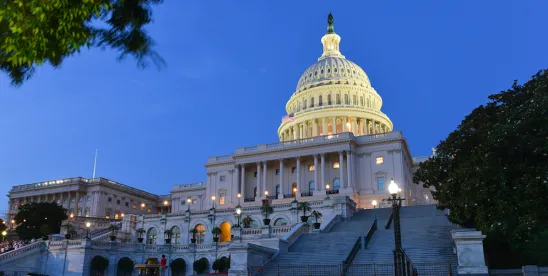The budget reconciliation bill passed by the House of Representatives on May 22, 2025 (the “Reconciliation Bill”), contains a number of provisions targeting tax-exempt entities. While these provisions do not specifically target or call out hospitals, they may apply to tax-exempt and government hospitals.
Excise Tax on Compensation Expanded
Under current law, tax-exempt organizations and certain government entities are subject to a 21 percent excise tax on employee compensation that exceeds $1 million or that constitutes an excess parachute payment. The excise tax applies to amounts paid to the five highest compensated employees of the organization in the tax year and those who had been in that category since 2017 (“Covered Employees”).
Hospitals exempt from taxation under section 501(a) of the Internal Revenue Code of 1986 (the “Code”) and, in some cases, those owned by state or local governments are subject to this excise tax. However, compensation paid to licensed medical professionals for the performance of medical services does not count towards the $1 million trigger of the excise tax. Only the portion of a medical professional’s compensation for other services, such as research, teaching, or administrative or governance duties, are considered compensation for this purpose. Compensation paid by entities related to the tax-exempt or government entity, such as a for-profit or tax-exempt subsidiary or other affiliate, is included for this purpose.
Section 112020 of the Reconciliation Bill expands the scope of the excise tax by broadening the definition of Covered Employee to include all employees and former employees – not only those who are or have been one of the five most highly compensated. Tax-exempt and government hospitals entities and medical facilities affiliated with large hospital systems may be affected if they have large numbers of highly paid executives.
Tiered Increase on Private Foundation Investment Earnings
Hospitals, particularly those reliant on financial support from private foundations, also should be aware of the proposed increase in the tax on private foundation net investment income – as the increase will, potentially, leave private foundations with fewer assets to distribute to tax-exempt hospitals and other charities. Tax-exempt private foundations are currently subject to an excise tax of 1.39 percent on net investment income. Section 112022 of the Reconciliation Bill would increase the tax rate for private foundations with assets of $50 million or more. The increased rates will be tiered as follows:
- 2.78% if assets exceed $50 million but are less than $250 million;
- 5% if assets exceed $250 million but are less than $5 billion; and
- 10% if assets reach $5 billion.
Assets of related entities generally are included for this purposes — though assets will not be taken into account with respect to more than one private foundation. (The Reconciliation Bill does not address how assets will be divided when the aggregated group of related entities includes more than one private foundation.) Further, assets of related organizations that are not intended or available for the use or benefit of the private foundation are not taken into account unless the related organization is controlled by the private foundation. Notably, asset valuation would take on greater significance under a tiered system where a single dollar could double a private foundation’s tax rate. While the Reconciliation Bill states that asset value will be based on fair market value as of the close of the taxable year, numerous questions related to this calculation not addressed which may be problematic given that, if passed, this provisions will apply to taxable years beginning after the date of the enactment.
Parking and Transportation Benefits Included in UBTI
The Tax Cuts and Jobs Act, adopted in 2018, imposed the unrelated business income tax on parking and qualified transportation benefits provided to employees by tax-exempt employers. The provision was repealed retroactively the following year due to the complexity of calculating the amount to be included as unrelated business taxable income (“UBTI”) and uncertainty and confusion surrounding the application of the tax generally.
Section 112024 of the Reconciliation Bill would restore the requirement that tax-exempt organizations treat amounts paid and costs incurred to provide parking and qualified transportation benefits (defined in Code sections 132(f) and 132(f)(5)(C) respectively) as UBTI. Reinstating this requirement would increase the taxable income of tax-exempt hospitals and require them to update their accounting systems and administrative procedures to ensure compliance. As currently drafted, the provision does not address or resolve the complexities that led to its repeal in 2019.




 />i
/>i

